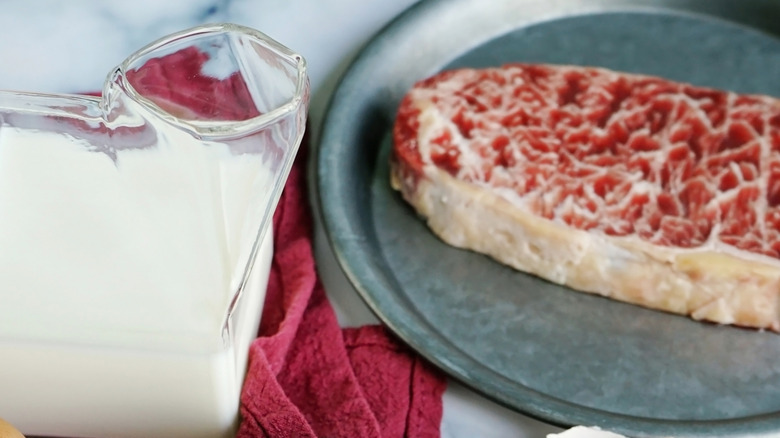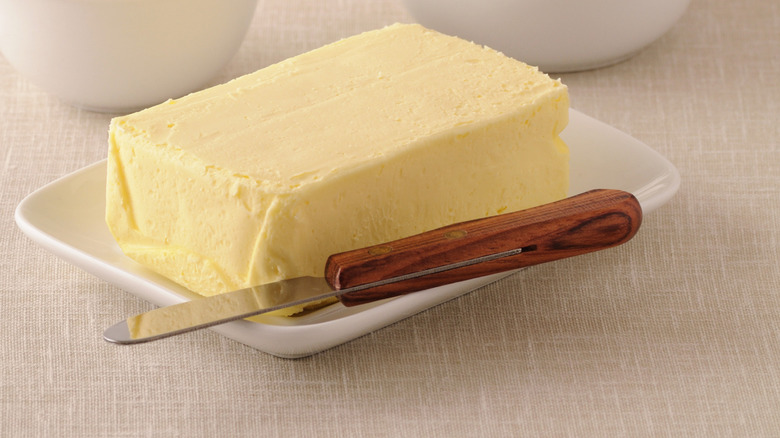Don't Knock It Till You Try It: Marinate Your Next Steak In Milk
Marinating is a great way to take a piece of beef from meh to magnificent, and some cuts of steak especially suit marinating. At base level, a good marinade is all about protein breakdown and flavor add-ins. By letting your steak soak up a marinade for a few hours (or overnight) you can infuse meat with any spice or aromatic you're craving. But most importantly, the acid in your marinade should be enough to start breaking down the proteins in your meat, leaving you with a velvety, tender, succulent piece — even if the cut you bought is a little on the tough side. Before you start reaching for your vinegar, lemons, or wine, though, why don't you try a bottle of milk?
That's right. Weird as it may sound, milk is one of the great ingredients for a steak marinade, and it's all rooted in simple science. Milk and other dairy products all contain lactic acid, which is why yogurt-marinated meat gets so soft. Lactic acid is, as the name implies, a corrosive agent that breaks down meat in the same way vinegar and fruit juices do. But it's a much milder acid. Leaving your meat to soak in milk for several hours sees a nice and slow breakdown of muscle fibers and results in meat with a tender chew. On top of that, milk helps seal in moisture, leaving each bite of steak super-juicy.
Milk saves your beef flavor from overpowering marinades
We all love a robust steak marinade every now and then. Whether you enjoy using mustard in steak marinades like Ina Garten, or you prefer hot peppers, you've probably enjoyed a steak that's bathed in deliciously punchy flavors before. But what about those days where you just want to enjoy the beefy, meaty taste of a steak all on its own? Again, milk is key.
Milk has a very mild taste, especially when used as a marinade, so the natural flavor of the steak itself will stay the star of the show. Just be sure you don't marinate it too long; you might get a bit of that dairy funk lingering if you do. Up to 24 hours is generally plenty long enough for any marinade. And use whole milk rather than reduced-fat for the best results.
Other types of dairy also work for steak marinades, like the aforementioned yogurt or buttermilk. They also go beautifully with meats beyond steak, such as this buttermilk-braised pork shoulder recipe. But these dairy options tend to leave more of a tang than milk does in the final product. On the plus side, they break down meat even faster thanks to their acidity, so you'll have a more tender cut in less time. But if you're looking for flavor and tenderness, good ol' cheap and readily available milk from any grocery store is the way to go. Who would have guessed?

